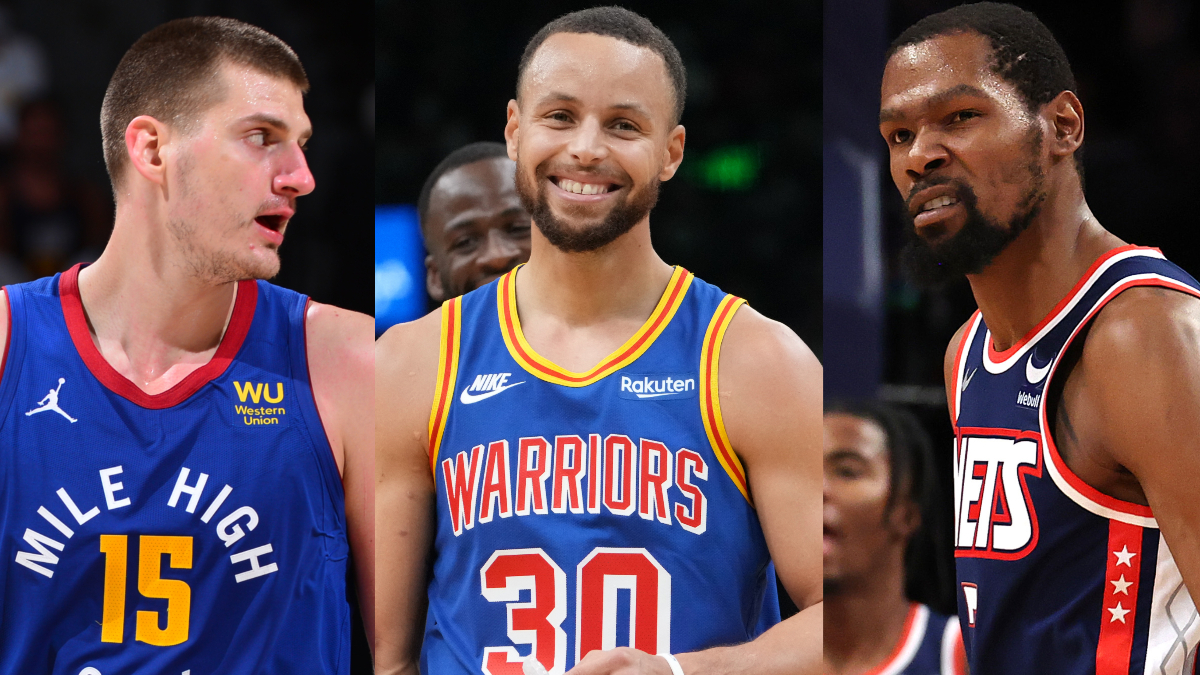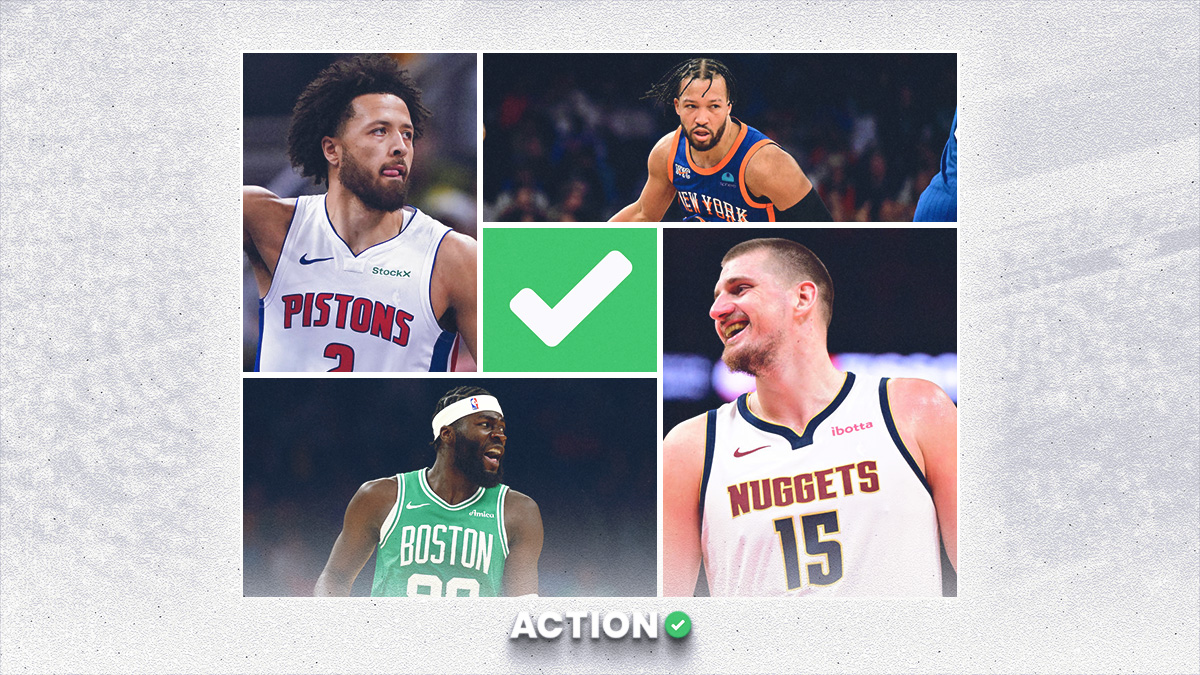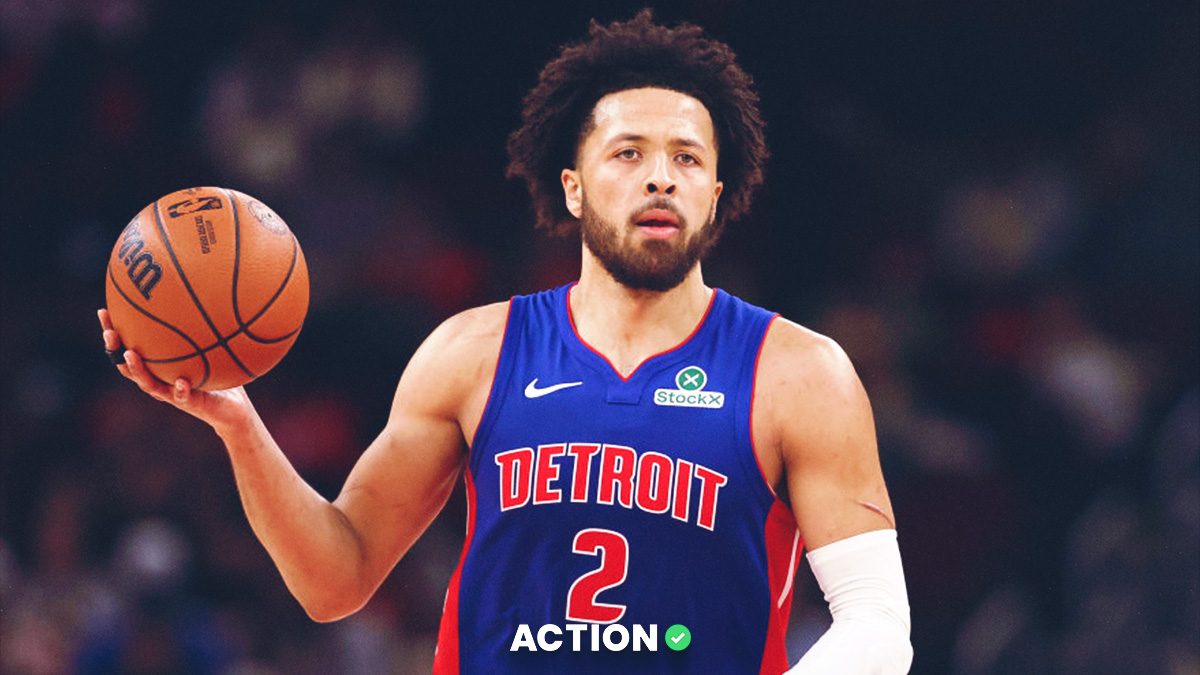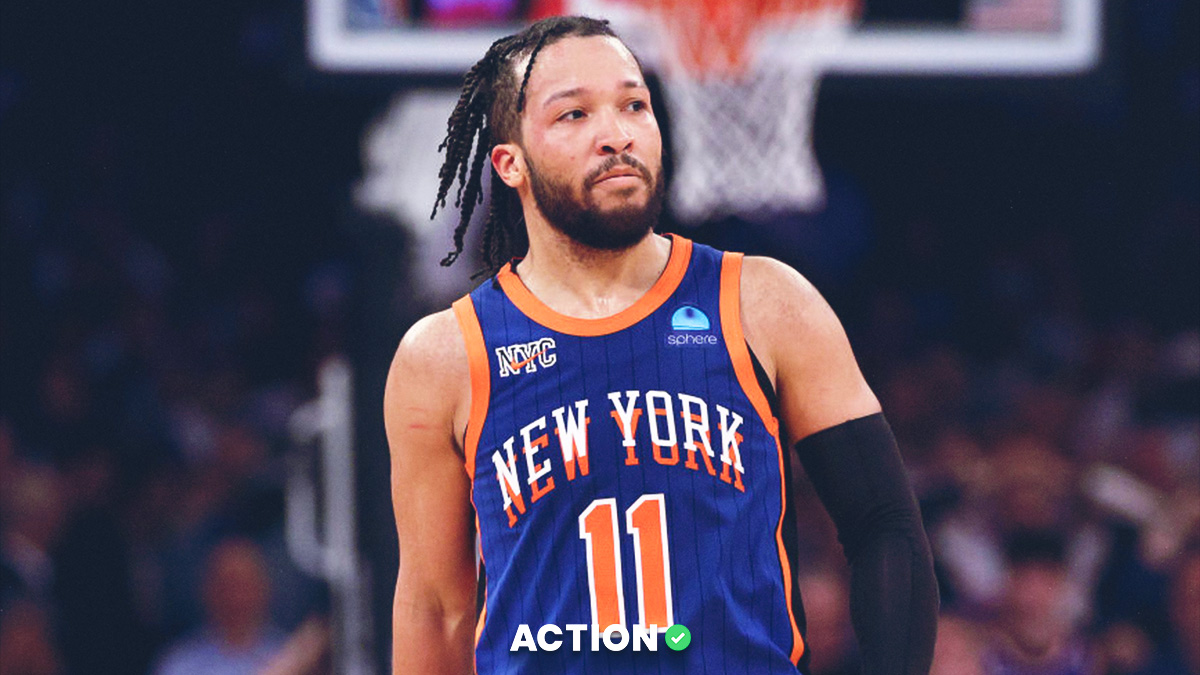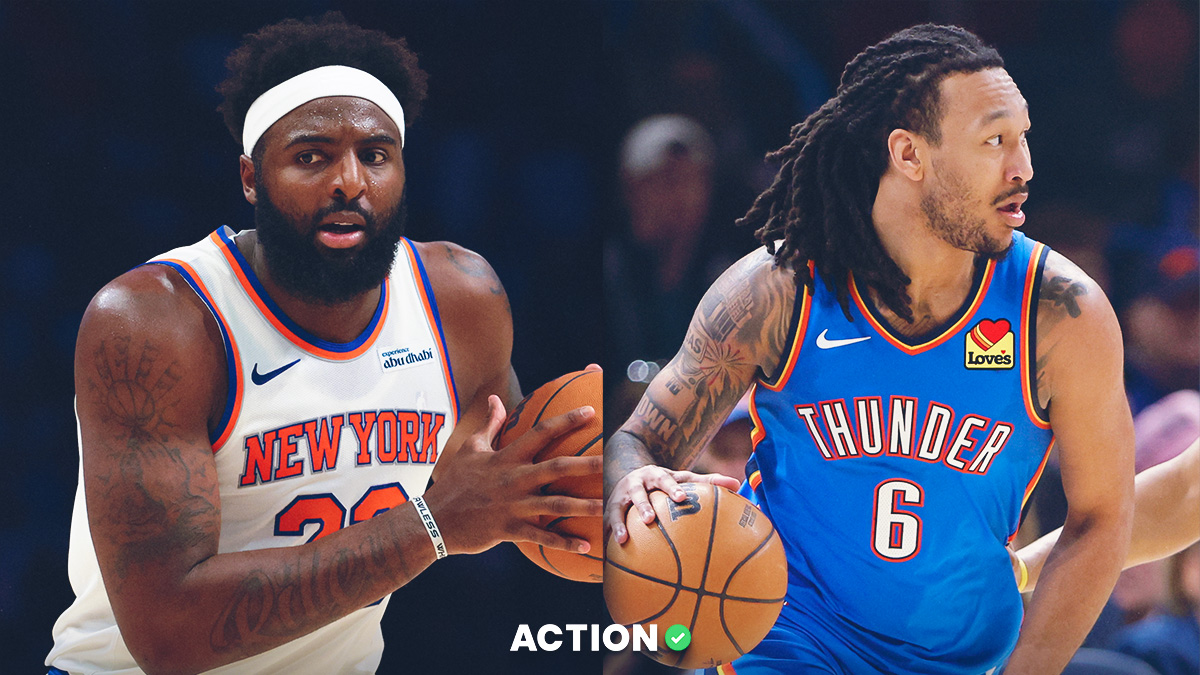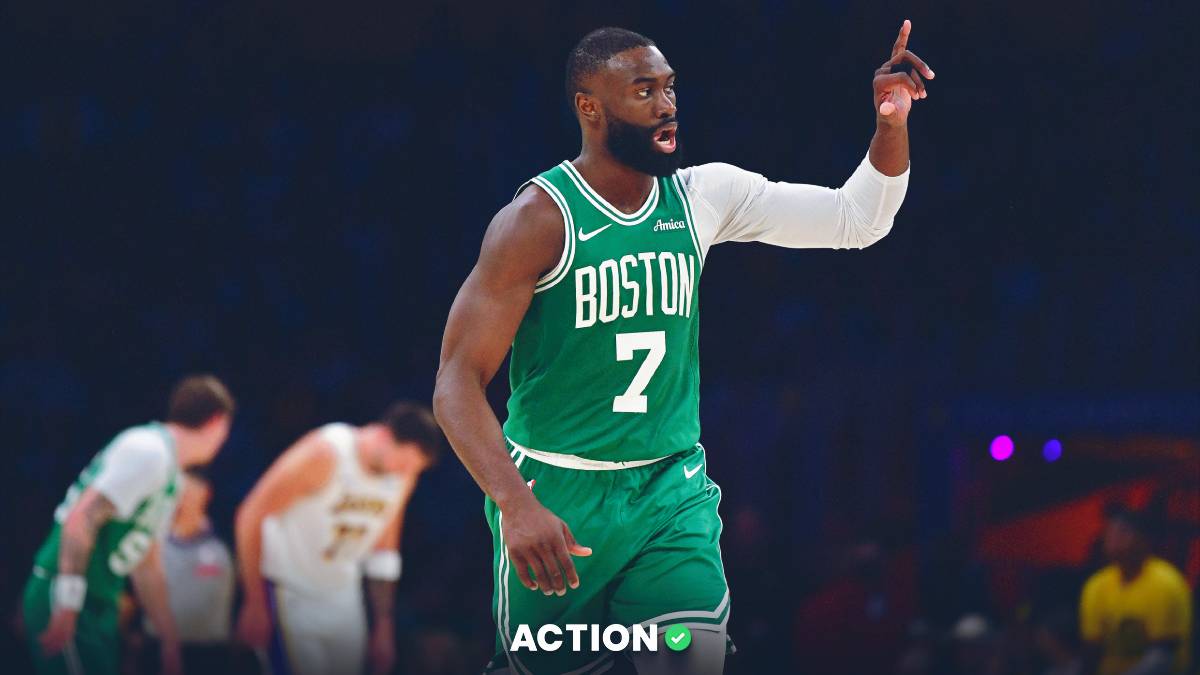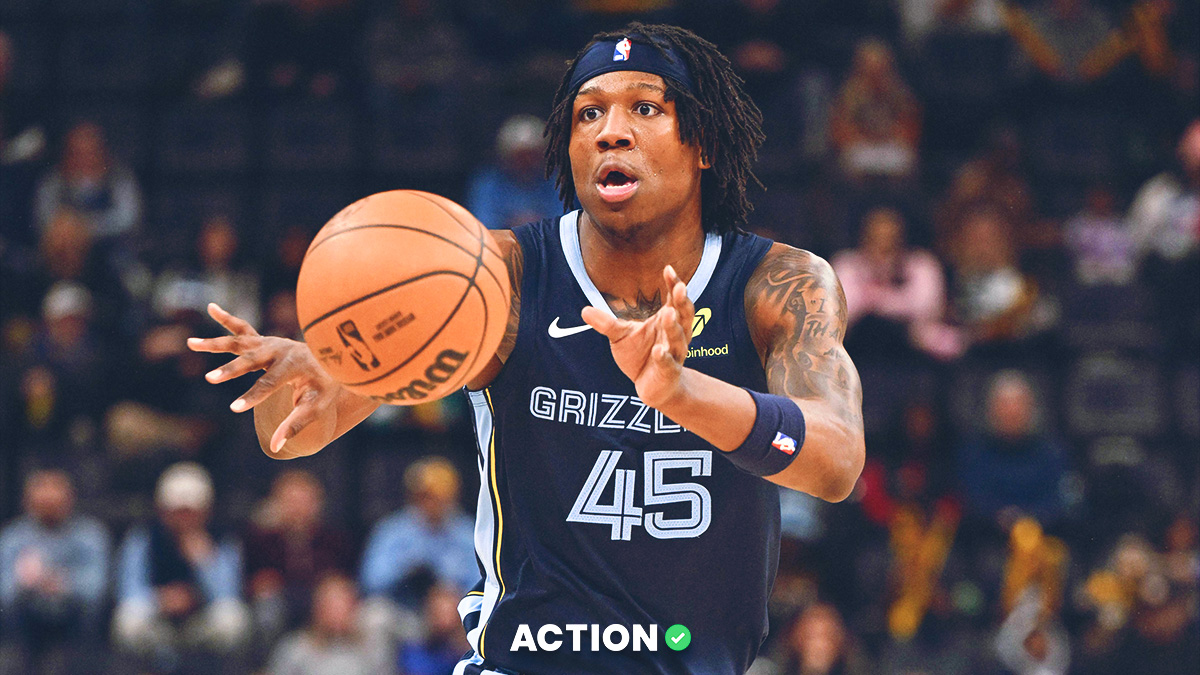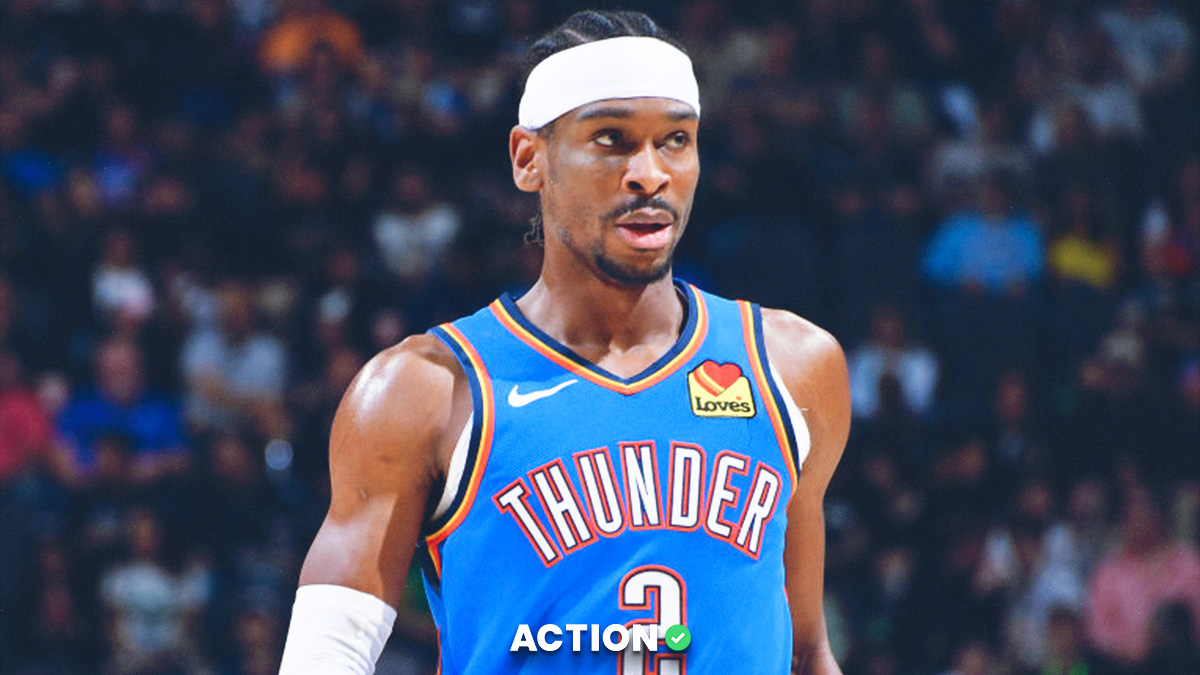2022 NBA MVP Odds
Odds as of Dec. 22 and via BetMGM.
In a sport where one player can shift the dynamics of a team, a conference and the league as a whole, the NBA’s Most Valuable Player Award is the highest accolade an individual can receive. It’s also one of the league’s most polarizing topics of conversation.
Winning an MVP award can single-handedly define a player's season, career and legacy, so much so that every award winner who has been eligible for the Naismith Memorial Basketball Hall of Fame has been inducted.
Still, the criteria and selection process for who generates the most value for their respective franchise has always been subjective.
Is the MVP the best all around basketball player in the league, the best player on the team with the best record, the player with groundbreaking historical numbers or the player who elevated his team the most relative to that team’s expectations?
These are valid narratives and each voter can justify their case for the player of their choosing depending on what matters most to them.
The 2020 MVP Race was an odd one with us seeing multiple MVP frontrunners in Joel Embiid, LeBron James and James Harden go down with major injuries just as they were playing their best basketball. It was par for the course after a season that saw the league's best teams play deep into the NBA bubble and had just weeks to get ready for the 2020-21 season.
Although Embiid was the frontrunner for the award for most of the season, a knee injury caused him to play just 51 games. That opened the door for other candidates, and Nikola Jokic took full advantage.
Averaging 26.4 points, 8.3 assists and 10.8 rebounds, the Nuggets center became just the third player since 1988 to win the award despite his team not finishing in the first or second seed. Our model correctly predicted that Jokic would win the award.
I’ll be tracking the MVP race for the rest of the season using my model to determine if there’s value within the betting markets.
How the Model Works
To predict the winner of the Most Valuable Player Award, I performed a regression analysis — a statistical process for estimating relationships between a dependent variable (outcome variable, ie: MVP votes) and independent variables (predictors, ie: points, rebounds, team Wins, etc).
I collected data from the 1985 through last season, featuring all regular and advanced statistics on Basketball-Reference.com as well as voting patterns for players who finished top in MVP votes for each season.
Since individual performance is a huge part of winning the MVP Award, I included points, rebounds, assists, steals, blocks, minutes played, field goal percentage, VORP (Value Over Replacement Player) and Win Shares Per 48. To incorporate team performance, I included playoff seeding and win percentage as opposed to wins and losses due to shortened lockout seasons in 1999 and 2012. To account for players who exceed preseason expectations I've also included preseason title odds from basketball reference.
Despite starting with 56 different variables, many weren't statistically significant and there were others that had collinearity issues which forced me to remove many of them from the final model. For example, if you know a player's field goal makes and attempts, you know their field goal percentage.
An advanced statistic like PER (Player Efficiency Rating) is also correlated with Box Plus/Minus. True Shooting percentage takes into account free throws and 3-point attempts, so you can see how many of these variables are thrown out based on multicollinearity.
I also used two different regression techniques for my analysis: linear regression and logistic regression.
Linear Regression Model
A model that assumes a linear relationship between the
input variables (x) and the single output variable (y).
This model predicts the amount of voting shares each player would receive based on their individual statistics and team wins. Because the amount of MVP voters have changed over time, I use voting shares as a dependent variable as opposed to votes.
Logistic Regression Model
A regression model where the dependent variable (DV) is
categorical. The model takes on binary dependent variables — that is, where it can take only two values: pass/fail, win/lose
In this model, we're simply predicting the probability of whether each player will win or lose. The Logistic Regression model tends to put more emphasis on team wins and seeding than the Linear Regression model.
If a player isn't on a team that's the first or second seed in their conference, the Logistic Regression model doesn't give them much of a chance at winning MVP based on historical voting trends.
Historical Factors
Winning Matters
Since 1985, 28 of the 36 MVPs have led their team to the No. 1 seed in their Conference; six have led their team to the No. 2 seed; the other three were outliers — Michael Jordan in 1987 (No. 3 seed), Russell Westbrook in 2017 (No. 6 seed) and Nikola Jokic last season (No. 3 seed).
No Country for Old Men
From the first MVP winner in 1956 to the present, there have been 13 league MVPs who were aged 30 or above. Six of them won in the 1990s — Magic Johnson (90), Hakeem Olajuwon (94), Michael Jordan (96, 98) Karl Malone (97, 99). Steve Nash (05, 06) was the last player to win MVP as a 30-year-old.
Outlier Performances
The linear regression model, which used voting shares as a dependent variable, predicted 25 out of the 37 Award Winners (67%). The logistic regression model did even better, predicting 30 out of the 37 (81%) Award Winners.
Here are some of the notable predictions my model got wrong (you'll notice these are award seasons that are still debated today):
Karl Malone (1997): If there's a poster child for voter fatigue, it's Malone's 1997 MVP campaign. Jordan led the Bulls to a 69-13 record with the No. 1 seed in the Eastern Conference while Malone and the Jazz finished 64-18.
My linear regression model projected that Jordan would receive 65% of the voting share while my logistic regression model gave Jordan an 82% chance of winning compared to Malone's 74%.
Allen Iverson (2001): There's some discrepancy between my two models during this year. My linear regression model had Shaquille O'Neal generating the most voting shares followed by Chris Webber. However, my logistic regression model had Iverson winning largely due to leading the 76ers to the No. 1 seed in the East.
Steve Nash (2005, '06): Because player points per game have been such a big factor in determining past MVPs, my model didn't know how to account for Nash, who averaged 15.5 and 18.8 points per game in his back-to-back MVP campaigns.
In the 2004-05 season, my linear regression model predicted Dirk Nowitzki would receive the majority of the voting share. The next year, my models projected he'd lose to both Chauncey Billups and LeBron James.
Kobe Bryant (2008): Although Bryant averaged 28.6 points, 6.3 rebounds, 5.4 assists and 1.8 steals while leading the Lakers to the No. 1 seed in the Western Conference, this one wasn't without controversy. For many, this was seen as the lifetime achievement award after not getting the MVP during previous seasons.
The Lakers winning a late-season matchup against the Hornets likely gave Bryant enough of an edge to get the award. My models aren't aware of individual games, but it projected Chris Paul to garner 58% of the voting share and win the award 59% of the time.
Russell Westbrook (2017): Westbrook's triple-double campaign got him the award despite finishing with the No. 6 seed in the Western Conference.
Both models projected James Harden to win with the logistic regression model projecting that he'd have a 97.3% chance of winning. A player winning the MVP on a lower seed is so out of the norm that I'm not sure there's any model that would capture the outlier season Westbrook had, in addition to the narrative of him carrying the Thunder without Kevin Durant.
All Models Are Wrong, But Some Are Useful
Like any other model, these projection systems have their flaws. The drawback to these models is that they assume each player's performance is independent.
Although they can rank the likelihood of a player winning MVP, it doesn't give explicit probabilities as the predictions assume that the dependent variables are independent between players, so all probabilities between candidates don't sum to 1.
So I wouldn't recommend blindly betting the rankings from these models. This should be used as a guide along with additional analysis (and of course recognizing the season narrative) before making a wager.
2022 MVP Model Projections
Here’s a look at the odds to win the NBA MVP award compared to my model's projections. Reminder: This is a snapshot of the race at a given point in time, so these numbers will evolve.
2022 MVP Race
Wednesday, Dec. 22
Stephen Curry
Stephen Curry opened at +600 to win the MVP, but Golden State's 18-2 start instantly made him the frontrunner. The NBA's leader in all-time 3-point shots is averaging 27.1 points, six assists and 5.4 rebounds while shooting 39.6% from deep and leading the Warriors to the second-best record in the Western Conference at 25-6.
Despite having a bench which resembles the Strength and Numbers era Warriors, this team is +12.6 points per 100 possessions better with Curry on the floor vs off the court so his MVP level impact can't be understated. However, he has slipped in my model given its emphasis on seeding as it's heavily weighted based on past MVP winners.
Kevin Durant
According to both my linear regression and logistic regression model, Kevin Durant presents the best value to win the league's Most Valuable Player Award. Leading the league in scoring with 29.7 points per game on 52.3% shooting while averaging 5.9 assists and 7.9 rebounds, Durant is leading the Nets without Kyrie Irving and with an inconsistent James Harden to the best record in the Eastern Conference at 21-9.
Durant, who returned to MVP form after coming back from his Achilles injury last season, is second in minutes per game (37) and has put this Nets team on his back. Brooklyn is scoring 114.2 points per 100 possessions with him on the floor to 103.5 with him off (+10.7).
Although Irving will be returning to the team as a part-time player in road games, Durant is still likely to maintain his MVP-level impact all season.
Since both of my models heavily weigh points per game and seeding, Durant is the frontrunner in my models. One interesting caveat to note is that Harden also appears to have a decent chance of winning in my model, primarily because the Nets are on top of the Eastern Conference.
Nevertheless, if I had to make a bet on the MVP at the current numbers available in the market, I'd make a bet on Durant at +240.
Nikola Jokic
When it comes to MVP voting, you often hear debates about what makes a player the most valuable? Is it the player having the best individual statistical season on the team with the best record? Is it the best player in the league? Or is a player who is carrying an undermanned roster who would fall apart without him?
While many will say Curry is having the best individual statistical season on the best team and Durant is the best player in the league, Nikola Jokic has a case for being both the best player and a player who is most valuable for his team given the injuries his team is dealing with.
Jokic is averaging 26.3 points on 59% shooting while also grabbing 13.5 rebounds and dishing out 7.5 assists. He has led the Nuggets to a 15-14 record, fifth in the West without Jamal Murray and Michael Porter Jr. The Nuggets have also dealt with a variety of injuries to other role players including JaMychal Green, Will Barton and Austin Rivers.
Still, Jokic has this team in contention for a top-four seed in the West. Even more impressive is that Jokic is leading the league in nearly every advanced statistical metric. He has the highest PER of all time (34.2), he's first in box plus minus (14.5), offensive (9.7) and defensive box plus minus (4.8), offensive win shares (3.7), win shares per 48 (.312) and value over replacement (3.3).
Unfortunately for Jokic, he suffers from not being the exciting, high-flying or physically imposing player who fills up highlight reels. With candidates like Curry and Durant, it's unlikely he wins again, particularly with the Nuggets unlikely to finish as a first or second seed.
Last season, it appeared that the media was on an #AnybodyButJokic campaign, looking for nearly anyone to avoid giving the MVP Award to Jokic. That won't have to happen this time, but if there's a true "most valuable player," he's it. Just don't count on him winning it this season.
Giannis Antetokounmpo
Giannis Antetokounmpo was one of my picks to win the league's Most Valuable Player Award at +850 before the season started, and my colleague Brandon Anderson did a solid job at highlighting all the reasons why he checked all the boxes.
We've since seen his odds rise to +950 since then. The Bucks are coming off their first championship, and they don't look like a team that's going for it in the regular season. Although Antetokounmpo is putting up his typical MVP caliber stat line of 27 points, 11.6 rebounds and 5.8 assists, this is a team that has been riddled with injuries as he, Khris Middleton, Jrue Holiday, Brook Lopez, Bobby Portis and many others have missed time.
While those injuries could help Antetokounmpo's case if the Bucks get one of the top-two seeds in the Eastern Conference, that achievement seems highly unlikely for a team that knows it needs everyone healthy for the postseason.
DeMar DeRozan
It may come as a surprise to see DeMar DeRozan pop up here, but he's averaging 26.8 points on 50% shooting while grabbing 5.2 rebounds and dishing 4.2 assists for a Chicago Bulls team which has the second-best record in the Eastern Conference.
The two things my models weigh heavily are points and seeding, so DeRozan fits the bill. He returned from the COVID-19 protocol and put up 38 points against the Lakers on Sunday, including this game-winning basket:
🚨 DeRozan puts the Bulls in front 🚨@Lakers 110@chicagobulls 111
15.6 to play: https://t.co/V0kkYEn6W6pic.twitter.com/52IvLjH7FG
— NBA (@NBA) December 20, 2021
DeRozan has certainly had an MVP-level impact, with eight 30-point games this season. He's particularly shown up in the clutch, as he leads the league in fourth-quarter points with 8.0, according to NBA.com. That's higher than both Antetokounmpo (7.3) and Durant (7.0). He's also the first Bulls player since Michael Jordan to score 50 points over a three-game span only in the fourth quarter, according to ESPN's Marc Spears.
Despite the success of the Bulls, DeRozan is unlikely to emerge as a serious candidate at +6600 at BetMGM, but my models indicate he's a decent longshot if there are injuries at the top of the board.
Chris Paul
As was the case with Steve Nash in our outliers section, point guards who aren't huge scoring threats will never be fairly priced by my MVP model, which places a huge emphasis on points.
Chris Paul is averaging just 14.3 points per game along with 10 assists, but he remains one of the highest impact players in the league. The Suns are scoring 114.1 points per 100 possessions with Paul on the floor and 107.8 with him off it. Paul is clearly the best player on a 25-5 Suns team with the best record in the NBA.
A big part of Paul's MVP case is the Suns' record in the clutch, as they're 12-1 in games with a point differential of five or fewer points in the last five minutes of a game. Paul should be getting more respect than the market is giving him. Without the flashy numbers, though, he's unlikely to win this award.
If you want to take a flyer, it might be worth taking Paul at +6600 in case one of the frontrunners goes down or slips up.


